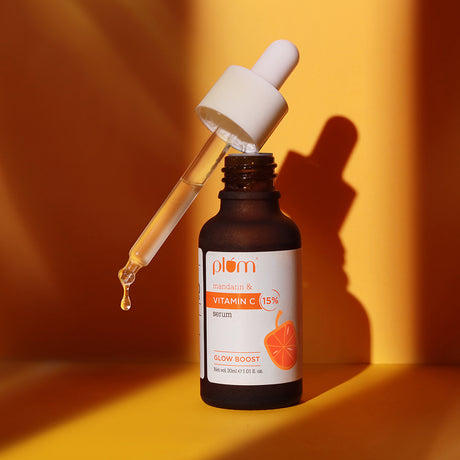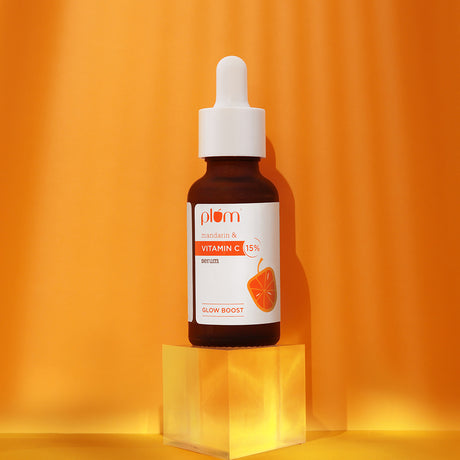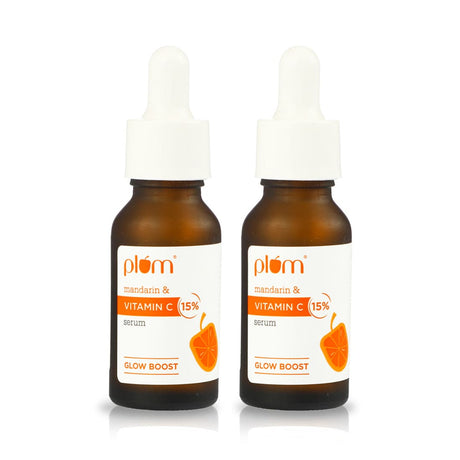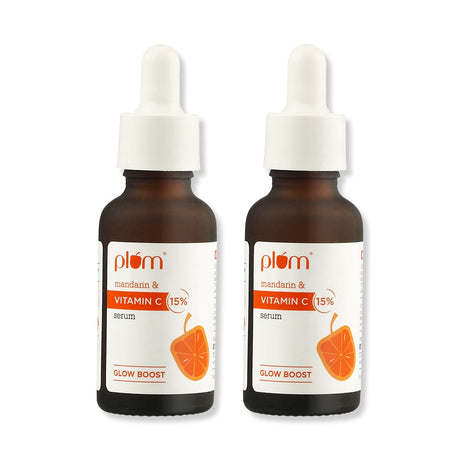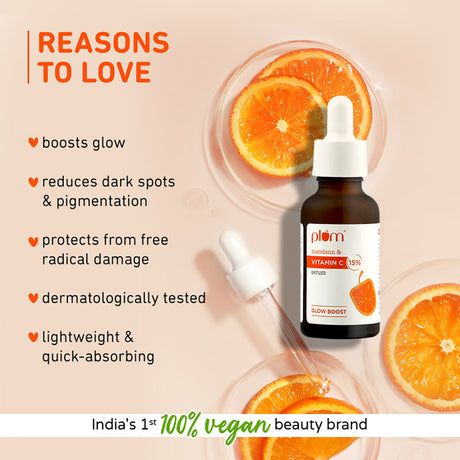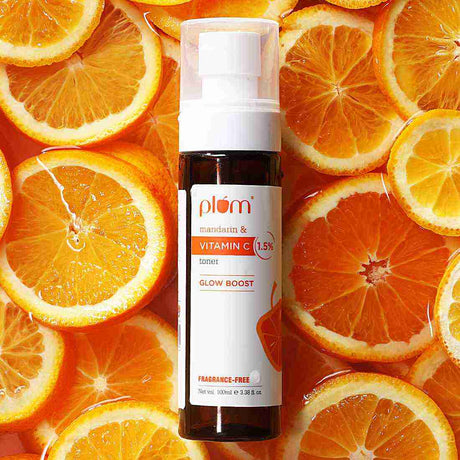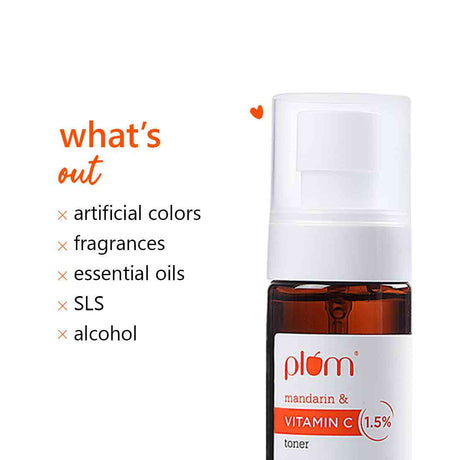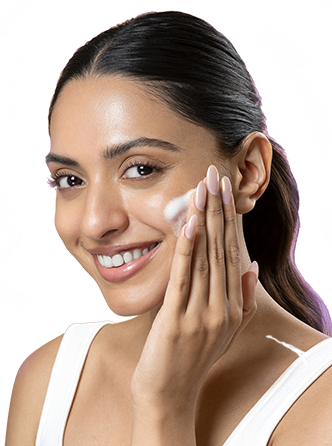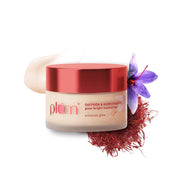
IN THIS ARTICLE
When we talk about skincare superstars, Vitamin C is always counted among the best.
It’s known to be versatile and loved for that glowing, even-toned skin by dermatologists and celebrities alike.
But beyond the buzz, does it really make a difference? Let's find out if it makes any difference and gives you the glowing skin you desire.
Here is all you need to know about vitamin C's benefits for the skin.
Read on.
What is vitamin C?
Vitamin C, also known as ascorbic acid, is a water-soluble vitamin found in many citrus fruits and vegetables. Crucial for various bodily functions, it helps boost your immune system, tissue repair, and collagen production.
As a powerful antioxidant, it helps combat free radicals that cause oxidative stress in your skin and accelerate aging.
While your body has enough concentration of vitamin C, it's crucial to maintain its daily requirement through diet, supplements, and topical applications.
Key benefits of ascorbic acid for skin:
Here are three key uses of vitamin C that make it a fave ingredient among dermats.
- Reducing Pigmentation: It inhibits melanin synthesis through the downregulation of tyrosinase enzyme activity.
-
Collagen Synthesis: It helps produce collagen, a protein responsible for skin elasticity and firmness.
- Antioxidant Power: It fights free radicals to reduce oxidative stress in the skin and reduce signs of aging.
Vitamin C benefits:
a. For skin:
-
Maintains elasticity: Vitamin C stimulates collagen synthesis, which helps maintain the elasticity of your skin, keeping skin firm and reducing the appearance of fine lines and wrinkles.
- Evens skin tone: Vitamin C inhibits the production of melanin, (a pigment responsible for your skin color and the appearance of hypopigmentation)by blocking tyrosinase enzyme. The addition of vitamin C in your skincare routine helps gradually fade dark spots, hyperpigmentation, and acne scars. Moreover, it helps reduce uneven skin tone, promoting a more even and radiant complexion.
-
Fights free radical damage: Vitamin C is known to aid sunscreen in protecting your skin against UV rays. It also shields the skin from environmental aggressors like pollution and sun damage.
- Suitable for all skin types: Vitamin C can be anyone’s friend. Whether your skin is oily, dry, sensitive, or normal, you can comfortably incorporate vitamin C into your routine to achieve glowing skin. However, do a patch test whenever trying out a new product.
2. For health:
While Vitamin C is crucial for your daily bodily functions, its deficiency can cause serious health implications like scurvy, weakened immunity, poor wound healing, anemia, etc. Here are some reasons you need vitamin C for your health and well-being:
- Strengthening immune system: Vitamin C strengthens the Immune system and supports the body’s defense system by enhancing the production of white blood cells. Moreover, it aids in accelerating the healing process of wounds, cuts, and burns and reduces the severity and duration of common health issues like cold and cough symptoms.
- Improves Iron Absorption: Vitamin C also enhances the absorption of non-heme iron from plant-based foods, reducing the risk of anemia.
- Promotes Heart Health: Vitamin C helps reduce oxidative stress, lowering the risk of heart disease.
Vitamin C uses for skin: how to include it in your routine?
The first and easiest way to get the benefits of ascorbic acid is through diet. There are many vitamin C-rich fruits and vegetables that you can include in your daily meals.
Through diet: Fruits like oranges, strawberries, grapefruits, kiwis, and lemons are enriched with high concentrations of vitamin C. Similarly, ascorbic acid-enriched vegetables include bell peppers, broccoli, spinach, and brussels sprouts.
Through topical application
Adding vitamin C-infused skincare is one of the best ways to get even-toned, radiant skin, as those products offer targeted benefits, delivering the ingredients directly to the skin.
Adding vitamin C products to your skin not only helps fade dark spots more effectively but also targets concerns like dullness, uneven skin tone, and early signs of aging. Its antioxidant shield also protects against environmental stressors, ensuring healthier, glowing skin. Moreover, vitamin C serum is suitable for all skin types, including oily skin.
Related: Vitamin C benefits for oily skin.
How much vitamin C is enough for your skin?
Depending on your skin type and concern, you can use a concentration of 10%–20% of vitamin C for your skin. The fastest way to get the benefits of ascorbic acid/vitamin C is through vitamin C serums.
Serums target your skin concerns more effectively, providing results faster. All you need to do is use the serum twice a day after cleansing and toning.
Alternatively, you can also include vitamin C-infused cleanser, toner, and moisturizer in your routine to target your pigmentation and uneven skin tone.
Conclusion
Vitamin C is more than just a must-have food item for your palate; it has the potential to transform your skin as well.
From enhancing collagen production and evening out skin tone to strengthening immunity and supporting overall health, its benefits are undeniable. Incorporate vitamin C into your routine for wholesome benefits.
Now that you are well-versed in the benefits of ascorbic acid for skin, shop for vitamin C products today.
FAQs
Q1. What are the benefits of vitamin C?
Vitamin C brightens skin, boosts collagen production, reduces dark spots, fights free radical damage, and strengthens the immune system.
Q2. Is ascorbic acid good for your face?
Yes, ascorbic acid (Vitamin C) is excellent for your face. It promotes even skin tone, enhances radiance, and defends against premature aging by neutralizing free radicals. It also helps reduce dark spots, smooths fine lines, and protects against environmental damage.
Q3. Is vitamin C better than retinol?
While vitamin C and retinol have anti-aging and brightening properties, they have distinct benefits for your skin. For hyperpigmentation and dull skin, Vitamin C would be a better fit. However, to reduce wrinkles and fine lines, opt for retinol.
Q4. Can vitamin C lighten skin?
Vitamin C helps inhibit the production of melanin in the skin which fades dark spots and hyperpigmentation and prevents them from reappearing. So, if you have no hyperpigmentation, the properties of Vitamin C serum can provide skin-lightening properties.



